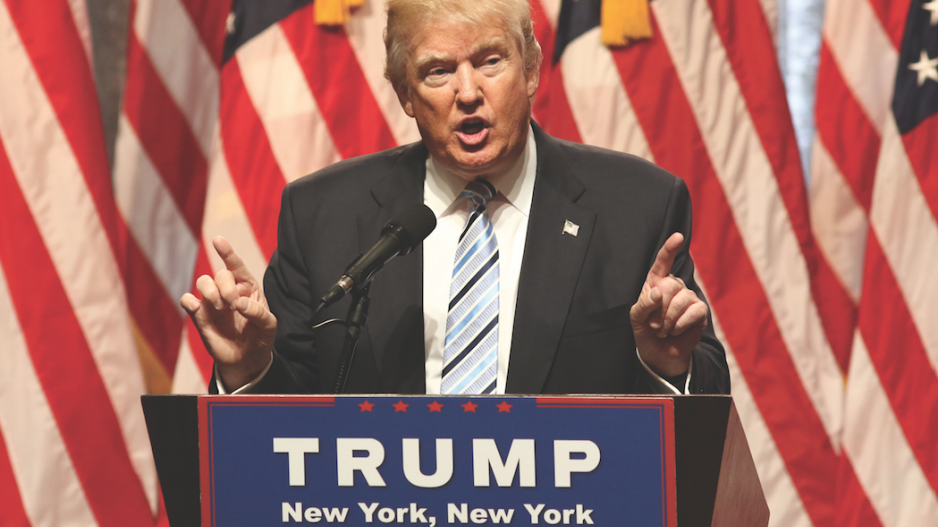The Trump bump
Donald Trump’s November 8 U.S. election win fuelled a stock market rally that sent the S&P 500 and TSX composite indexes up more than 5%. About a month after Trump’s election win, the S&P 500, Dow Jones industrial average, Nasdaq and the Dow transportation index all closed at all-time highs on the same day for the first time in 20 years.
Brexit boom or bust
After 52% of U.K. voters in a June plebiscite said that they wanted the U.K. out of the European Union, the U.K. pound sank to a 31-year low against the U.S. dollar and dropped relative to the Canadian dollar, making travel more expensive for British travellers who wanted to visit Canada.
Infrastructure opportunities
Prime Minister Justin Trudeau started to release infrastructure spending announcements following a 2015 election promise to spend $125 billion on infrastructure over 10 years, which was $60 billion more than the Conservatives had promised. One initiative with the B.C. government and municipalities could see $900 million spent in B.C. to expand bus lanes, add new railcars to SkyTrain and otherwise fix Metro Vancouver rapid transit.
Positive altitudes
Vancouver International Airport logged its busiest-ever month in August, highlighting the extent to which tourism to the province had increased. In 2016’s first nine months, international visits to B.C. increased 11.9% to more than 4.56 million compared with the same period a year earlier. The airport, meanwhile, is on track to welcome more than 22 million people in 2016.
Currency stability
The U.S. dollar started the year worth just over US$0.73 per Canadian dollar and was in the same range in December, adding stability to Canada’s currency in North America following steady appreciation against the Canadian dollar since 2013.
Budget balancing act
The BC Liberal government delivered its fourth consecutive balanced budget in the 2015-16 fiscal year, when the province posted a $730 million surplus, which was double the government’s original forecast.
EU access
Prime Minister Justin Trudeau signed the Canada-European Union Comprehensive Economic and Trade Agreement. Once in force, 98% of the tariffs between Canada and the EU will be eliminated. Most of the agreement will come into force if ratified by Canada and the European Parliament. The rest will be in effect if also passed by 28 EU member states.
Interest inertia
Bank of Canada governor Stephen Poloz mused about cutting Canada’s 0.5% benchmark overnight interest rate at different times through the year but in December affirmed that he would maintain it where it has been for the past 16 months.




